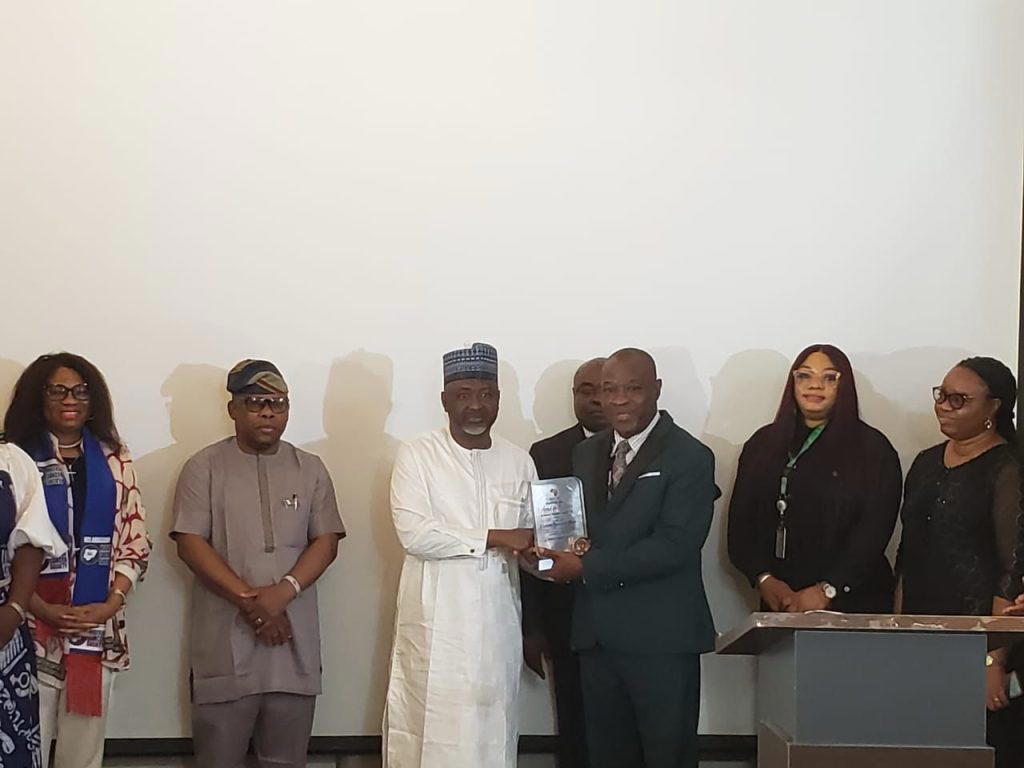16 states have no oncologist; Gombe, Maiduguri share one

By Chioma Obinna
Sixteen states in Nigeria currently have no radiation or clinical oncologists, a development experts warned is worsening late presentation and poor cancer outcomes across the country.
Read Also: US approves $32.5m aid for Nigeria to address hunger
The President of the Nigeria Cancer Society, Prof. Abidemi Omonisi, raised the alarm at the inaugural Science of Advanced Prostate Cancer (SoAPCA) Conference in Lagos.
Leading oncologists, researchers, and policymakers from Africa, the Caribbean, and the United States gathered to advocate for equity in cancer care.
“As we speak now, there are 16 states in Nigeria with no single radiation or clinical oncologist. And you cannot talk about cancer care without them. They are the ones who know the drugs, who direct radiotherapy, who guide treatment. Can you imagine? Sixteen states without one?”
Omonisi noted that even in states with oncologists, most are overstretched.
“In Gombe, one oncologist sometimes starts clinic in the morning and closes around 10 p.m. because he is also covering Maiduguri. Meanwhile, Lagos alone has almost 50 percent of all oncologists in the country. The imbalance is dangerous,” he warned.
He lamented that most Nigerian men present with prostate cancer at late stages, including elites and political leaders. “A state governor was diagnosed only when his prostate cancer had already advanced,” he revealed.
While acknowledging government efforts to establish oncology centres and a national cancer fund, Omonisi said the support was grossly inadequate.
“In the 2025 federal budget, only ₦150 million was set aside for cancer treatment across breast, cervical, and prostate cancers. That is shamefully small compared to the burden,” Omonisi stressed.
He urged the National Assembly to prioritise cancer care in the 2026 budget.
Also, speaking to journalists, Mayo Clinic Professor of Haematology and Oncology, Prof. Folakemi Odedina, stressed that Black men globally face the highest risk of prostate cancer yet remain underrepresented in clinical trials.
“The majority of prostate cancers we see in Nigeria and across Africa are at very late stages. That is really unfortunate and deadly.
“What is even scarier is that simply being a Black man is itself a risk factor for prostate cancer. Add family history and age, and the risks multiply. Yet many men don’t even share family history with their brothers or sons, which makes prevention harder.”
Odedina warned that Africa cannot continue depending on therapies designed for non-Black populations. “For years, drugs were developed based on studies in other populations, and we simply hoped they would work for us. That is why clinical trials in Africa are critical.
She pointed to the ongoing research into genetic differences, diet, and environmental exposures.
She highlighted how cooking methods, such as charring red meat over open flames, release toxins linked to prostate cancer.
She also stressed the potential protective role of vitamin D and lycopene (from tomatoes), urging more Africa-centered studies.
Sharing Cameroon’s experience, Prof. Nkegoum Nkegoum, National Coordinator for Cancer Control at the Ministry of Health and the University of Yaoundé, described a dire shortage of facilities.
“We have 20,000 new cancer cases annually in Cameroon, with 30,000 people living with the disease. Yet 80 percent of patients never reach a hospital — they are managed by traditional healers.
“For the entire country, we only have one old cobalt radiation machine, while Nigeria has at least 15. This conference shows us there are opportunities for Cameroonian patients to come to Nigeria for treatment and for our students to train here.”
Nkegoum added that years of prioritising infectious diseases like HIV, malaria, and most recently COVID-19 diverted resources from cancer, while language barriers also limited access to global oncology knowledge.
From Kenya, Dr. Charles Githiaka, Honorary Lecturer at the University of Nairobi, revealed that up to 85 percent of Kenyan men with prostate cancer are still present at advanced stages.
“This has barely changed since 2007 when it was 88 percent,” he said. “The main barrier is a lack of awareness. Patients with tertiary education are less likely to present late, which shows how much education matters.”
Githiaka, who leads the IRONMAN Project in Kenya, an international registry tracking 5,000 men with advanced prostate cancer said comparative research is vital to design therapies suitable for African men, who tend to present younger and with more aggressive disease.
Also speaking, the Director General of the National Institute for Cancer Research and Treatment (NICRAT), Prof. Usman Malami, pledged Nigeria’s commitment to global collaboration.
“At NICRAT, we remain committed to forging strong partnerships to improve access to innovative treatment and evidence-based practice.
“This aligns with the government’s renewed agenda to fund cutting-edge cancer research and improve survival rates.”
Representing the Minister of State for Health, Dr. Iziaq Adekunle Salako, Special Adviser Kehinde Ololade said the government had recently commissioned three comprehensive cancer centres in Enugu, Benin, and Katsina. He reaffirmed that the cancer fund, which supports patients with ₦1 million each, would be sustained, and pledged support for inclusive clinical trials in Nigeria.
In his welcome address, Prof. Ademola Popoola, said SoAPCA was conceived to build a global platform for collaboration.
“This year’s theme, Addressing Advanced Prostate Cancer Through Inclusive Clinical Trials, reflects our collective commitment to equity in research and care,” he said.
The three-day meeting, hosted by the Prostate Cancer Transatlantic Consortium (CaPTC) in partnership with international consortia, ended with a shared call for urgent policy reforms, expanded research, and stronger funding to close Africa’s cancer treatment gaps.
The post 16 states have no oncologist; Gombe, Maiduguri share one appeared first on Vanguard News.

 yarkarkara
yarkarkara 





